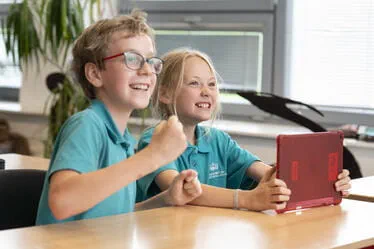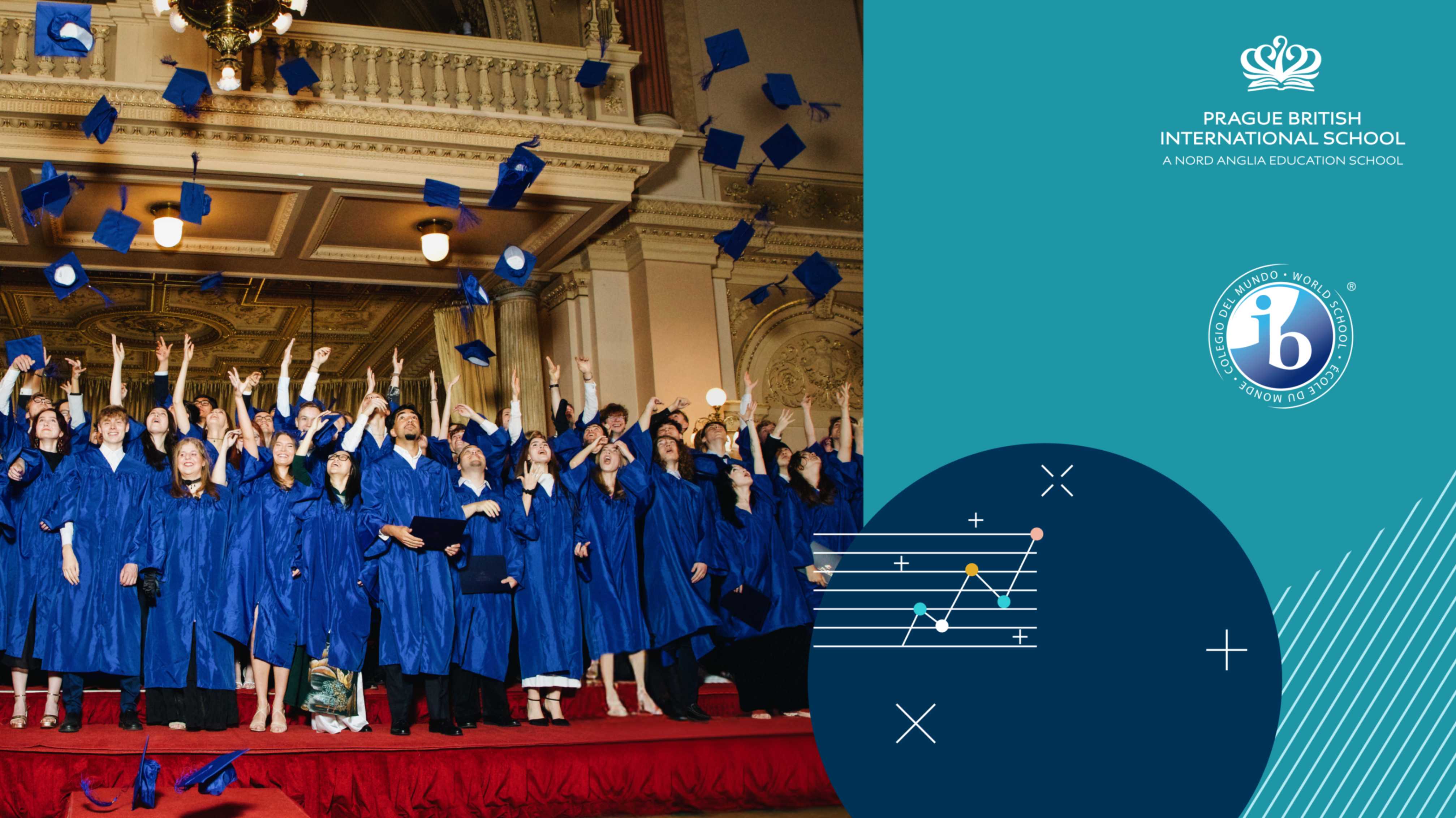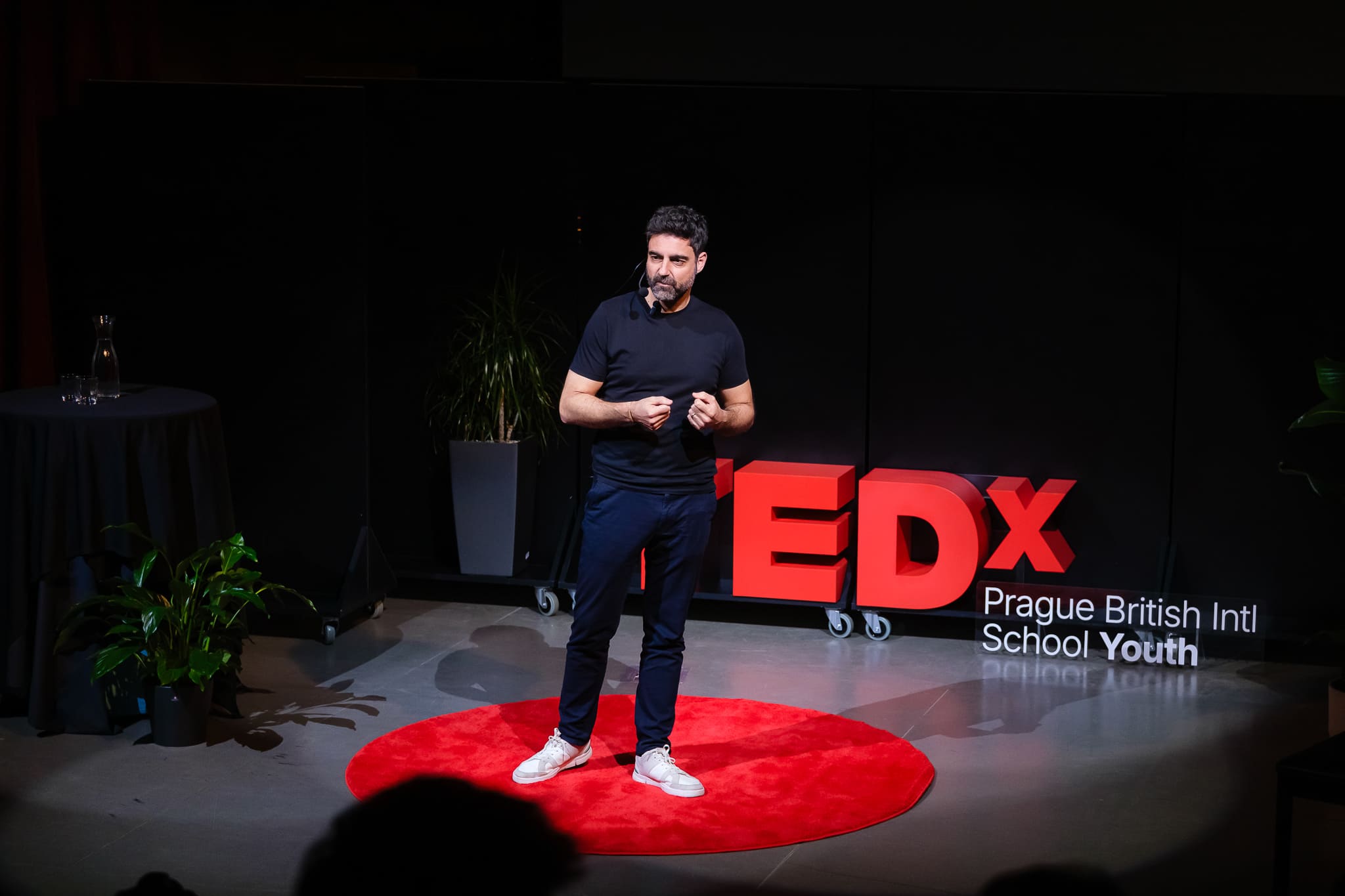Our collaboration with NAE UNICEF allows us to send our students to New York to meet like-minded people, with whom they get a chance to communicate, collaborate, devise, and implement actions they have worked on. During a week in NYC, in groups, students were assigned a Sustainable Development Goal (SDG). Their task was to bring new ideas to the table on how to improve aspects of the given goal and act on how they would implement their ideas in their schools, which was then presented to NAE's CEO, Andrew Fitzmaurice, and UNICEF representatives.
Our student summed up the goal of the Summit nicely:
"The aim of the UNICEF Summit is to develop an action plan for making a positive impact on our community and our schools."
We spoke to our students, Tyna, and Ana, and found out about their experience from the 2023 NAE-UNICEF Summit!
What sustainability goals did you work on?
Tyna: My group was assigned Gender Equality, which is quite a complex issue, but in the end, we managed to push through. The people involved were supportive and collaborative, and I learnt a lot from it. But we struggled as a team because the topic seemed impossible to work on and was hard to solve. It was stressful to then present it to the CEO of Nord Anglia Education and other impressive guests.
Ana: My group worked on SDG number three, which is Good Health and Well-Being. Our focus was on how to prevent vaping in schools. So, we presented this topic and even though we had different ideas, we managed to communicate effectively, and nobody hesitated to express their opinions, both positive and negative.
What was your idea?
Tyna: My idea was to involve more girls in sports like football and basketball, because girls are not really involved in sports or in STEAM. It's quite a male-dominated area, but I also noticed when I was part of the Eco Club, that such areas are female-dominated. In the end, we focused on sanitary products. I learnt that other schools provide free sanitary products for students, so we were trying to promote the accessibility of free sanitary products at schools. I also wanted to promote the sustainability aspects of sanitary products and raise awareness of how these products can be harmful to not only the environment, but also people.
Ana: Under goal number three, there are many sub-topics, and one of them is "Prevent and Treat Substance Abuse''. Coming from various parts of the world such as Europe, America, Asia, we all agreed that this topic would be something applicable to all of us. We started discussing: "How can we stop it? How can governments help? How can we reach the government?". We needed to find a solution that is within our power to change. Our solution was to establish more focus groups to educate people about the consequences and increase awareness of the harmful consequence of vaping. I'm interested in psychology, so I also looked at the perspective of why teenagers engage in such behaviour. It's a form of social cognitive dissonance – knowing it's bad but continuing to do it to avoid certain feelings or traumas.
What did you take back from this experience?
Tyna: Learning how improving gender equality might have a positive impact on the environment and the interconnection of the Sustainable Development Goals was truly eye-opening. I thought they were quite separate. Understanding how improving education might result in a better economy and better equality was also very eye-opening. I was also really inspired by other students and was mesmerised by how ambitious the other students are. They organise their own charities, publish their own books for children, get involved with the local communities, etc. I was so inspired by them, that I now plan to continue with the activities we did here at PBIS. It pushed me to be more ambitious. When I was looking at the other examples, I thought to myself, "I can achieve the same thing or better."
Ana: One of my takeaways is to never say no. If I hadn't taken this opportunity, I wouldn't have met so many new people and made so many new friendships. I learnt a lot about UNICEF and the UN (United Nations). Before the Summit, the concept and the ethos of UNICEF seemed very distant and unrealistic, but now that I have been to New York, I've met a lot of experts working at such organisations who have explained the concept and situations so well, that I now look at it differently. For example, conditions in Africa, Ukraine, and the Balkans right now – what are they doing to help? Or AI, what are they doing to implement AI and protect us from it.
What projects are you currently working on?
Tyna: I received an offer to work for the Nord Anglia Alumni project, which is creating a platform for those graduated from Nord Anglia Schools to stay connected. I'm also presenting about mental health for students who are joining Nord Anglia schools, since joining a new environment and new educational systems can be quite stressful. The aim is to present ways of coping with these situations, communicating better with new people, and not getting overwhelmed by work.
Ana: I want to continue with the projects we have already started, which would heavily benefit our school community. But sometimes, school commitments can get in the way, which is entirely understandable.
What advice would you give to students going to the UNICEF Summit?
Tyna: If you have the opportunity, you should grab it. The hardest part was to sign up; confidence is very important, and we tend to compare ourselves to others and think that we cannot do certain things. So many opportunities can be missed just because you didn't believe in yourself. The most valuable piece of advice I received was: "Sometimes the doubtful and negative thoughts can be loud but you’re much more likely to look back one day and regret the opportunities you didn’t take. Once you’ve left school, it becomes a bit harder to try things out”.
Ana:Don't worry it! I was very stressed that I would not fit in, I thought the students would be competitive and very smart. But after the first two days, I realised that everyone was very nice, and we all had very similar mindset. I met so many new people and built new friendships. So just don’t worry about it.













